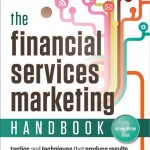How to prepare for your podcast interview
You’ve been invited to be a guest on a podcast. How exciting! This could help you reach more members of your target audience. But, if you’re like me, excitement quickly turns to fear. In this post, I share what I learned when I prepared to be interviewed for a podcast.
1. Ask for the questions in advance
Some people can handle any questions gracefully without advance preparation. However, most of us do better with time to reflect.
Ask your interviewer to share questions in advance. It’s often not practical for interviewers to share a complete list. After all, your live interaction should inspire new questions. However, an initial list will help you to prepare.
2. Decide on your main messages
A big-picture strategy will focus your preparation and the comments you make during your live interview. That makes it easier on you. I like the tips in “Creating Your Message: A Seven-Part Series” by Brad Phillips on the Mr. Media Training blog.
Your listeners benefit, too. Your narrow focus makes it easier for them to learn from your interview, as you repeat and deepen their understanding of your message.
Have stories ready
Stories will make your message memorable. “A story can be your personal story, an anecdote, a case study, a historical example” or something else that makes your message more concrete. Mr. Media Training explains this in more detail in “Telling Powerful Stories.”
Prepare sound bites, not soliloquies
Sound bites—catchy phrases—make it easier for your listeners to absorb your message. I like how Mr. Media Training explains them in “Sizzling Sound Bites.” Also see “Ten Ways To Create Memorable Media Sound Bites.”
Another advantage of sound bites: They’re easier for you to remember. That’s helpful if you’re trying to speak without looking at notes.
Use statistics
Numbers that resonate with your listeners will increase your impact on your listeners. They’ll make you more memorable. Mr. Media Training’s “Don’t Use Numbers—Use Social Statistics” explains this.
Know your goals
Sure, you want to educate and maybe even entertain your podcast listeners. But you also have a bigger goal. Perhaps it’s to promote your book or interest people in your investment or wealth management services. Make sure you work that into your conversation.
If possible, ask your interviewer to mention your services or products in her or his introduction. If you have a freebie or other special offering, it’s good to mention that in the closing.
3. Prepare and test your technology
If podcasts aren’t a regular part of your routine, get comfortable with the technology before you’re interviewed.
At a minimum, test your technology in advance. For example, ahead of recording a podcast via Skype, I installed the latest version of Skype, tested and fixed the settings for the microphone that plugs into my PC, and had a friend call me via Skype. If I hadn’t done that, my interview might have been cancelled by my microphone problems.
4. Practice
Practice helps. At least, it helps if you’re a slow-thinking introvert like me. When I speak my answers out loud, I develop new ideas. Also, my words flow better in live interviews if I’ve mulled them over in advance.
However, I’ve learned to avoid memorizing answers word for word. That saps their energy. I do, however, type up some bullet points. Their availability calms me, even though I try not to look at them during live interviews.
As part of my preparation, I collected some techniques for gaining time to think about questions for which I wasn’t prepared:
- Say “That’s a great question.”
- Paraphrase or clarify the question.
- Say “I don’t know about that, but what I do know…”—this is a way to sidestep difficult questions or to get your interview back on your message.
5. Prepare your environment
On your interview day, do whatever you can to ensure you’re speaking in a calm, quiet environment. For example, turn off or mute any sources of disruptive noises. For my most recent podcast, I put my landline phone in “Do not disturb” mode and shut down Microsoft Outlook so a task reminder wouldn’t beep at a bad time.
6. Have fun!
Approach your podcast with good preparation and a positive attitude. With a good interviewer, you’re bound to have fun.
Image courtesy of stockimages at FreeDigitalPhotos.net






